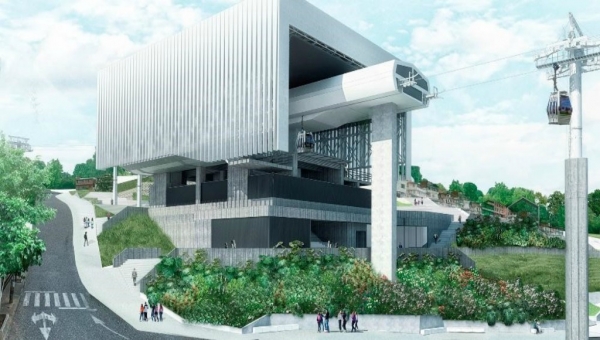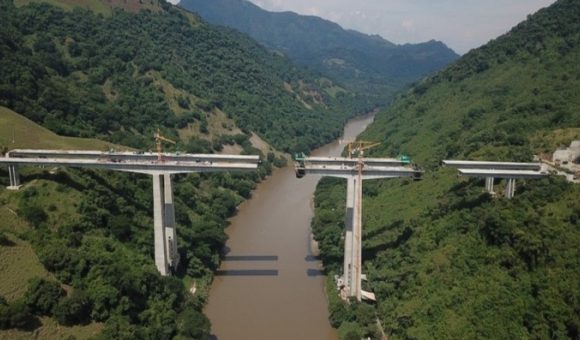Medellin’s Zero-Emissions Public Transport Network Continues to Expand

Medellin Mayor Federico Gutiérrez announced June 13, 2019 that the city’s enormously popular “Metro” public-transport network will add yet another zero-emissions aerial-tram “Metrocable” system — helping to stem air pollution mainly caused by obsolete diesel and gasoline vehicles.
The 2.8-kilometers-long, COP$298 billion (US$99 million) “El Picacho” aerial tram is due to start-up in late 2019, he estimated.
Local residents had to abandon nearly 400 homes to make way for construction of the new route.
The “Picacho” line would serve about 160,000 people living in the working-class Northwest neighborhoods of Castilla and Doce de Octubre.
That line will join Metro’s existing electric-powered Metro rail system, an expanding electric-powered “Tranvia” road-tram network, the “Encycla” bicycle system, and the low-emissions, natural-gas-fueled “Metroplus” bus rapid transit (BRT) systems, which are gradually being replaced by 100% pure electric buses.
Medellin gets virtually all its electric power from zero-emissions hydroelectric dams, with Medellin-based power utility EPM expanding capacity with the 2.4-gigawatt “Hidroituango” hydropower plant partially starting-up in late 2021.
Exito, EPM Team-up on EV Recharging
Meanwhile, Medellin-based multinational supermarket giant Exito has gradually expanded a network of public electric vehicle (EV) recharging stations in Medellin – initially at the Éxito Poblado supermarket and at the “Viva” mall in the Laureles neighborhood.
While only a handful of EVs exist in Medellin to-date, local car manufacturer Renault (and its joint-venture partner Nissan) is one of the world’s leading makers of mass-market EVs — mainly in Europe, so far. Renault initially launched sales of its “Twizy” mini-EV here and then in 2018 debuted the “Zoe” EV four-passenger sedan. BMW, Nissan, Mitsubishi and BYD also are marketing pure EVs here.
















